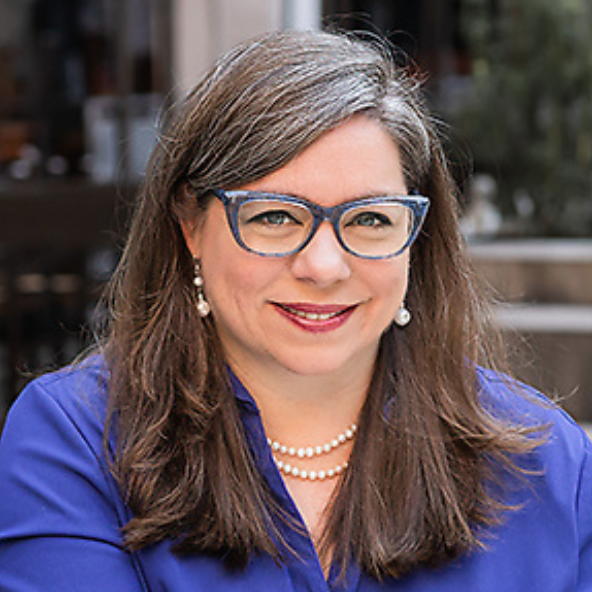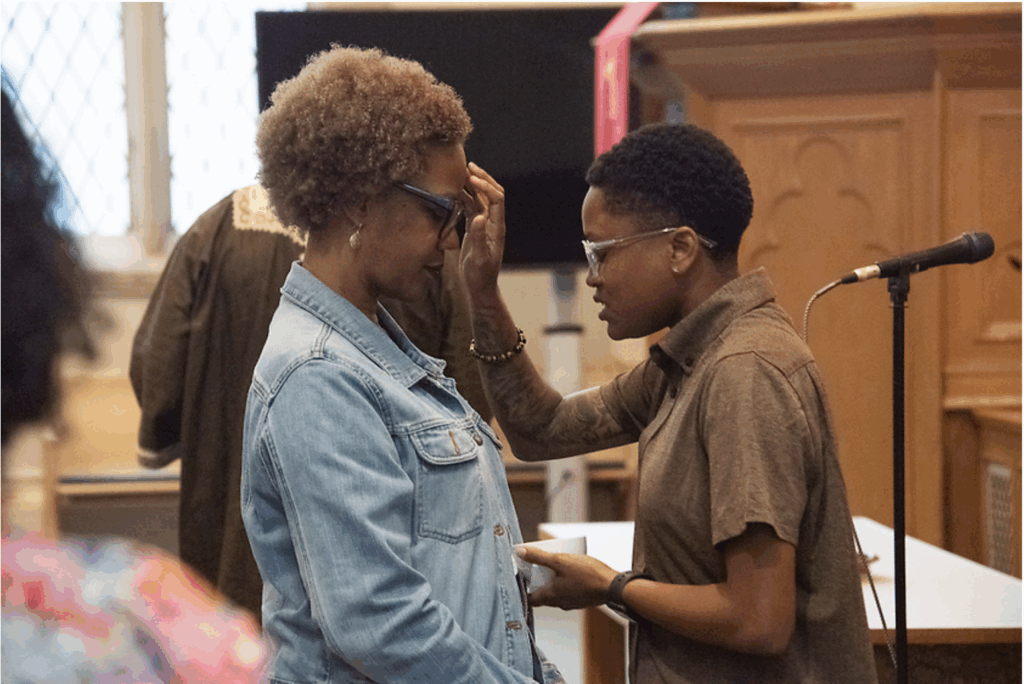Hero background image default
Degree Program
For those in pursuit of rigorous, creative, and interdisciplinary work
Apply Now!The Master of Arts in Practical Theology (MAPT) equips persons for a broad array of ministries with rigorous, creative, interdisciplinary work. The curriculum is designed around the conviction that theory, theology, and practice are connected inextricably to one another. Students can therefore expect to deepen and broaden their understanding of faithful, informed practices of ministry in and across diverse contexts. Alongside a broad basis in theological studies, MAPT students choose an area of concentration.
MAPT Areas of Concentration
“The reason why I chose Colombia was for the diversity…it wasn't just talking about diversity, which I think institutions tend to do, but actually embodying diversity. I hope that I will be trained to address some of the concerns that are happening in churches…I would like to see the church grow and really be what the church should be, which is every tongue, every tribe, every nation.”
— Lauren Christian, MAPT Student
Two Years, Many Paths
Columbia Theological Seminary is known for excellence in the teaching, research, and scholarship of practical theology. Over the span of two years, MAPT students have the opportunity to take courses from faculty members with diverse research interests and denominational affiliations.
Below you will find sample courses within each concentration, as well as the associated core faculty.
The Educational Ministries Concentration focuses on the teaching, learning, and spiritual formation of people and communities through liberative forms of education.
Sample Courses
The bible and biblical hermeneutics have shaped the lives of Christians everywhere and in every time. The bible has been harnessed to oppress and to liberate. It has been cited to exclude and include. It has been used to justify the isolation of some Christian communities and the expansion of others. This course will explore how the bible has been used for the formation of Christian and their communities, and how we might teach the study of the bible through liberative pedagogy, utilizing creative educational tools and incorporating the understanding of developmental theories.
Though Christianity historically “arrived” among different peoples and places through the auspices of mission and colonialism, it is the subsequent emergence of Christianity–in its indigenized forms and alongside other religious traditions–that is both exciting and challenging for the Church today. This course discusses how different forms of Christian spiritualties and practices are formed anchored, taught, and learned in different global communities, examining the different and unique themes that emerge from minoritized and indigenized Christianities.
This course surveys the field of human development and explores the developmental theories and methods that inform current education practice. Students conduct faith interviews with children, youth, and adults, which are then used to analyze and critique developmental psychology.
Core Faculty
The Pastoral Care and Pastoral Theology Concentration integrates therapeutic practices of care with attention to intercultural, global structures that affect and inform suffering and healing.
Sample Courses
This course will help equip ministry leaders to hone practicing attention to and remaining present in the midst of death, dying, illness, loss, and grief. The course places these dynamics of communal life in a narrative frame that attends to both theological and psychological aspects in intergenerational and intercultural perspectives.
This course introduces the Mindfulness-Based Stress Reduction program as a foundation for managing stress and sustaining ministry. Mindfulness practices in-class and at-home help to cultivate presence, attentional control, self-awareness, compassion, and cognitive flexibility.
This course: examines how historical, collective, and intergenerational traumas impact individuals and communities affected by colonialism, slavery, war, and systemic oppression; utilizes interdisciplinary frameworks to analyze how cultural trauma shapes mental health outcomes, identity formation, and resilience; and explores somatic-based and culturally sensitive approaches to healing trauma.
Core Faculty
The Worship, Preaching, and the Arts Concentration focuses on how arts and aesthetics support transformational practices of worship and preaching
Sample Courses
In this course, we consider theologies of space and time that help to shape liturgical imagination. We discuss practical challenges and implications of leading Christian communities, where time is often experienced as scarce and spaces are contested. These questions are explored through texts, discussions, and ethnographic explorations of worshipping communities in the Atlanta area.
The theology of African Americans is in the resilient spirit of the community, the art, the creativity and the genius. This course locates Black theology as it manifests itself not just in churches, but in the spheres of Black life where God thrives and serves as the source of our strength.
This course aims to analyze the challenges to preaching for justice vis-à-vis politics in contemporary American contexts. Students will study how preachers have pursued proclamatory justice in light of these challenges in the past, consider some contemporary proposals for continuing that work, and then extend the practice with sermons of their own. The course moves, then, from sociopolitical analysis to a history of practice to practical counsel to the practice of preaching. That movement—a kind of practical theological reflection—is itself one of the main things this course hopes to teach.
Core Faculty

MAPT Lead Professor
Associate Professor of Practical Theology and Pastoral Care
Practical Theology (18 credit hours)
Additional Requirements (15 credit hours)
Supervised Ministry (6 credit hours)
Electives (9 credit hours)
How long does the MAPT take to complete?
Students typically take two years to complete the MAPT but can take up to three years to complete the degree. Students pursuing a Dual MDiv/MAPT typically take 4 years to complete the degree.
How much does an MAPT cost?
Columbia is invested in making theological education affordable. MAPT and MDiv/MAPT Students who take a full course load in the fall and spring semesters (i.e., 9 credit hours each semester) receive 100% tuition coverage. Beyond this, students are responsible for purchasing books, paying activity fees, insurance costs, and the regular costs of living (i.e., room and board). Beyond tuition coverage for full-time students, 20% of our students receive scholarships. Some of these cover the student activities fees, while others cover room and board and an additional stipend. All students who complete their application by January 15 are considered for Columbia scholarships. See Financial Aid for more information on the cost of receiving a seminary education at Columbia.
Can I do this degree online?
While Columbia offers a limited number of courses online, students will take the majority of the courses necessary to meet the degree requirements in person.
What does a typical week at Columbia look like for a student?
Students typically take 4 courses a semester, which means they spend 12 hours a week in coursework (usually on campus). Students spend an additional 9 hours per course on preparations (e.g., reading) and assignments (e.g., writing essays, engaging in group work or creative projects). Some students spend this time in the library, while others prefer to study at home, in the student lounge (called the Space), or someplace else on Columbia’s beautiful campus. Beyond these course requirements, students are also encouraged to engage in community conversations (called Forum), bi-weekly chapel services, and a variety of activities and outings planned by Student Formation and Campus Culture. Columbia offers a free lunch to students every weekday at 12:30 PM. This is an opportunity for students to spend time together over a shared meal with fellow students as well as staff and faculty. Columbia is invested in community formation, strong in the belief that learning is not a solo activity. Indeed, students often find they learn as much from interacting with their fellow students as they do from the faculty.
Can I work next to this degree program?
While many of our students work alongside their degree program, it is not advisable to engage in full-time work alongside a full-time degree program. Many of our students, however, successfully engage in part-time work next to their degree program, whether that be on campus, in a ministry setting, or in a different setting.
Can I live on campus?
Yes! Columbia has several housing options available at different and competitive price points. Columbia offers housing for both families and couples. Single students can opt to live in single-unit dwellings or in shared living spaces with fellow students. Beyond housing, Columbia also offers its residential students access to a well-equipped gym, a common space with a large kitchen and ping pong and pool tables, as well as a community garden. Students often host community events or spend time with each other in these spaces.
Get in touch with our Enrollment Management and Vocational Outreach Team for more information. You can reach us at admissions@ctsnet.edu.
Did you know?
Students may also opt for a dual degree option, which combines the MAPT with the Master of Divinity.
Through the combined curriculum, students have an opportunity to delve more deeply into a particular area of concentration. By pursuing the degrees concurrently, students can also reduce the time required to graduate, from five years to four years.

©2023 Columbia Theological Seminary
Popular Topics